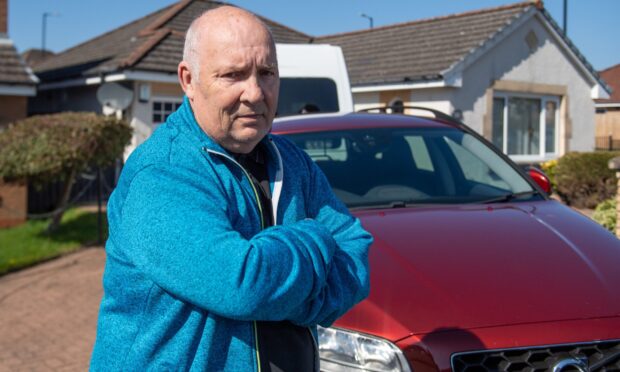Low incomes are fuelling a continuing rise in food bank use across Tayside and Fife, say charity chiefs.
The Trussell Trust recorded 28,046 emergency food parcel referrals across Fife, Perth, Angus and Dundee in the last financial year – amounting to more than 16% of the Scottish total.
Food bank bosses say many clients are in full time work but on zero hours contracts and are calling on the UK Government to reassess how benefits are paid.
The trust, which collated the figures, wants payments to be brought in line with inflation.
However, the Department for Work and Pensions (DWP) rejected the charity’s findings, dismissing the evidence as “anecdotal”.
Scotland experienced a 17% rise in referrals last year, with 170,625 three-day emergency food supplies distributed to people in need.
In Dundee, more than 2,000 children were fed from a foodbank between April 2017-18.
In Fife, almost 1,000 additional referrals were made in the same time period, with 12,343 made in total.
Perth experienced a rise of 500 more referrals than last year to 4,788 and in Angus almost 100 more referrals for food were requested, a total of 3,689.
Dundee Foodbank manager Ken Linton said the city had experienced a slight drop in the number of overall referrals but this was down to the service no longer handing out fuel vouchers.
“A large number of people in the city still needed emergency food last year,” he said.
“There were around 140 people per week coming to see us and we supplied food for more than 2,000 children last year, which is of real concern.
“We noticed this year low income being the greatest reason why people are being referred.
“For example, there was someone in recently who worked on a zero hours contract. Some weeks, they would make an amount of money they could live on, the next they could not.”
A DWP spokesman said: “The reasons why people use food banks are complex, so it’s wrong to link a rise to any one cause.
“This research is based on anecdotal evidence from a small, self-selecting sample of less than 0.04% of current Universal Credit claimants, whereas Universal Credit is working for the vast majority who claim it.
“It was also carried out before our significant improvements to Universal Credit came into effect at the Budget, such as 100% advances, which support people before their first payment, removing the seven waiting days and two weeks’ extra housing support for claimants moving onto Universal Credit.”
The spokesman said a million people had been lifted out of “absolute poverty” since 2010 and employment was at a record high.
“We continue to spend £90 billion a year on welfare to support those who need it most,” he added.
“The best way to help people improve their lives is through employment, with people on Universal Credit moving into work faster and staying in work longer.”










